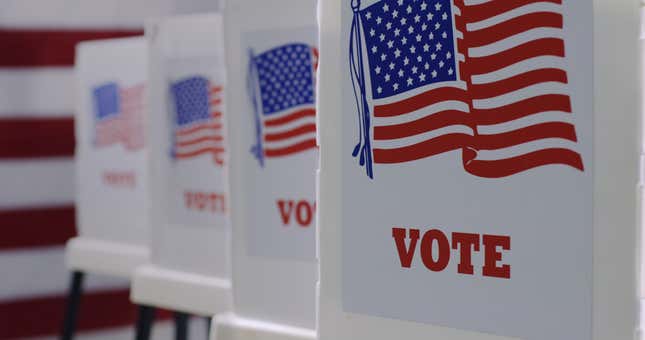
Georgia’s new voting law has been under fire due to both its restrictive nature and being high-key racist. Unsurprisingly, several lawsuits have been filed challenging the law, and a federal judge ruled on Wednesday that he wouldn’t block parts of the law ahead of a runoff election next week.
According to the Associated Press, the lawsuit filed by the Coalition for Good Governance didn’t deal with the more problematic and obvious issues with the law. Instead, the suit was mainly focused on issues related to election observation practices and absentee ballot deadlines. Advocates have said that the law criminalizes normal election observation practices and the stricter deadline for absentee ballots makes it nearly impossible to obtain one for the runoff election.
The new cutoff date to apply for an absentee ballot in Georgia is 11 days before an election. On June 15, two state House districts held special elections and runoff elections are planned for July 13.
In his ruling, U.S. District Judge J.P. Boulee said that any changes to the law could run the risk of “disrupting the administration of an ongoing election.” Boulee added in his order that the timing of the case was problematic, as the law passed in March and the suit was filed before the state House special elections. Boulee wrote that blocking the law “would change the law in the ninth inning.” Boulee did note that this ruling did apply only for the July runoff election.
Secretary of State Brad Raffensperger told AP that he believed the suit was “just another in a line of frivolous lawsuits” against the state’s election law. “We will continue to meet them and beat them in court.”
Marilyn Marks, executive director of the Coalition for Good Governance, told AP that while she was disappointed with the outcome, she was glad that there was still the possibility parts of the law could be blocked in future elections.
“We’re concerned about the voter confusion that will no doubt occur with these little-known rapid changes to the rules,” Marks said.

